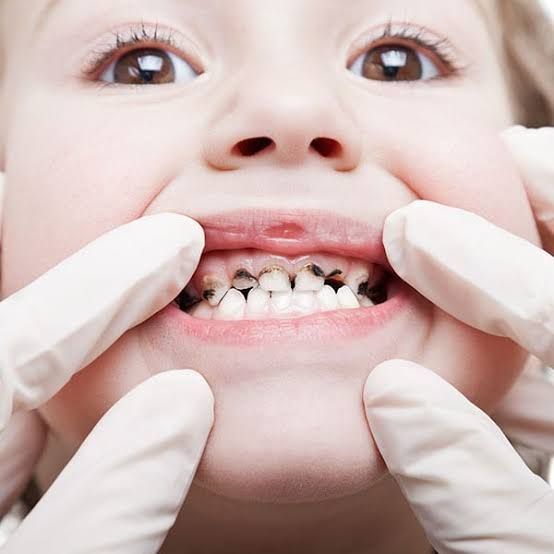Brush Before Bedtime
Brushing your teeth before going to bed is an essential part of maintaining good oral hygiene. It is important to keep your mouth clean and healthy to prevent tooth decay, gum disease, and bad breath. The American Dental Association (ADA) recommends brushing your teeth twice a day for two minutes each time, and bedtime is a critical time to ensure your teeth and gums are clean and healthy.
The need to brush before going to bed is significant because when you sleep, your mouth produces less saliva, which plays a vital role in washing away bacteria and food particles from your teeth and gums. This decrease in saliva production can lead to an increase in bacteria growth, which can cause tooth decay, gum disease, and bad breath.
Brushing before bedtime helps remove the plaque and bacteria that have accumulated on your teeth and gums throughout the day. Plaque is a sticky film of bacteria that forms on teeth and gums and can lead to tooth decay and gum disease if left untreated. Removing the plaque before bedtime helps prevent its growth and the subsequent problems that come with it.
It is essential to brush your teeth before bed to remove any food particles that may be stuck in your teeth. When left in your mouth, food particles can break down and release acid, which can cause tooth decay. By removing these particles, you prevent acid buildup and protect your teeth from decay.
In addition to removing food particles, brushing before bed also helps eliminate bad breath. When you sleep, your mouth is less active, which allows bacteria to grow and release volatile sulfur compounds that can cause bad breath. Brushing your teeth before bed helps remove the bacteria that cause bad breath, leaving your mouth feeling clean and fresh.
Another reason to brush before bed is to prevent gum disease. Gum disease is caused by the buildup of plaque and bacteria around the gum line. Over time, this buildup can cause inflammation, which can lead to gum disease. Brushing before bed helps remove the plaque and bacteria that can cause gum disease and keeps your gums healthy.
When brushing before bed, it is essential to use the proper technique. You should use a fluoride toothpaste and a soft-bristled toothbrush. Brush your teeth for two minutes, making sure to brush all surfaces of your teeth, including the front, back, and chewing surfaces. It is also essential to brush your tongue, as bacteria can accumulate there and cause bad breath.
In addition to brushing, it is also important to floss before bed. Flossing helps remove food particles and bacteria from between your teeth and along the gum line, which can reduce the risk of gum disease and tooth decay.
The Dangers of not brushing before going to bed
There are several dangers associated with not brushing your teeth before going to bed, including:
Cavities:
When you don't brush your teeth before bed, the food particles and bacteria in your mouth combine to form plaque, which can erode tooth enamel and cause cavities.
Gum disease:
Failure to brush before bed can also lead to gum disease, which can cause redness, inflammation, and bleeding. Advanced stages of gum disease can even lead to tooth loss.
Bad breath:
Poor oral hygiene can cause bad breath, which can be unpleasant for both the person with the bad breath and those around them.
Stains:
Not brushing your teeth can lead to the formation of stains on the surface of your teeth, which can be difficult to remove.
Sleep problems:
The presence of bacteria in your mouth can also cause sleep problems, such as snoring or sleep apnea, which can negatively impact your overall health.
Overall, brushing your teeth before bed is an essential part of good oral hygiene, which can help prevent a range of dental and overall health problems.
Benefits of brushing before going to bed
Brushing your teeth before going to bed is important for several reasons:
Removes plaque and bacteria:
Brushing before bed removes plaque and bacteria that have accumulated on your teeth and gums throughout the day. If left on your teeth, plaque can lead to tooth decay and gum disease.
Prevents bad breath:
Brushing before bed helps prevent bad breath by removing food particles and bacteria that can cause an unpleasant odor.
Promotes healthy gums:
Brushing before bed helps prevent gum disease by removing plaque and bacteria that can irritate and inflame your gums.
Helps whiten teeth:
Brushing before bed can help remove surface stains on your teeth and promote a brighter, whiter smile.
Improves overall oral health:
Consistently brushing your teeth before bed, along with flossing and regular dental check-ups, can improve your overall oral health and prevent dental problems.
In conclusion, brushing your teeth before bed is crucial for maintaining good oral hygiene. It helps remove plaque, food particles, and bacteria, which can cause tooth decay, gum disease, and bad breath. By following proper brushing and flossing techniques before bed, you can keep your mouth healthy and prevent oral health problems. So, don't forget to brush your teeth before bed!
Thanks for your time.
